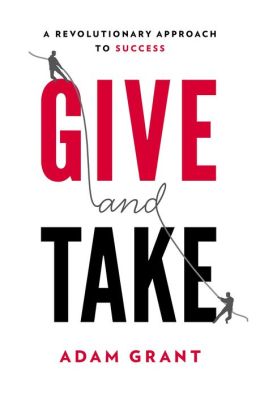Networking tips for shy people: How should introverts network?
e of the best networking tips for shy people might be simply "Move your desk at work." Via Achieving Success Through Social Capital: Tapping the Hidden Resources in Your Personal and Business Networks: Jeffrey Pfeffer tells a powerful story of a manager who attributes his success to his decision of where to sit. ...After carefully studying the facility layouts, the new director of engineering decided not to occupy his office in the so-called Executive Row. He noted that during the course…
4 minutes
How to network: 5 methods by top experts
ey say networking is vital but nobody explains how to network How to network is the real question. But first, in case you're a doubter, some quick proof that networking is essential: Research shows networking is essential to staying employed, salary growth and job satisfaction. It makes you more likely to get a job. Via Malcolm Gladwell’s The Tipping Point: How Little Things Can Make a Big Difference: In his classic 1974 study Getting a Job, Granovetter...found that 56 percent of those he talked…
5 minutes
How to be more attractive: 10 insights from the founders of OKCupid
s, math nerds can teach you how to be more attractive A lot of people know about the online dating site OKCupid. What many people don't know is it was built by four Harvard trained mathematicians who wanted to build a compatibility algorithm based on survey questions. So they're very focused on data. Singles have been mingling on the site for over a decade. What can all the behind the scenes number crunching tell us about how to be more…
3 minutes
“Nice guys finish last.” Really? What does the research say?
ice guys finish last." Is it true? To some degree it depends on what area of life we're talking about. Let's see what the research has to say... Money Nice guys finish last here. More agreeable people make less money: ...men who measured below average on agreeableness earned about 18% more—or $9,772 more annually in their sample—than nicer guys. Ruder women, meanwhile, earned about 5% or $1,828 more than their agreeable counterparts. “Nice guys are getting the shaft,” says study co-author…
4 minutes
6 ways to make someone fall in love with you:
Dim The Lights Nighttime is the right time. Via The As If Principle: The Radically New Approach to Changing Your Life: Describing his findings in an article entitled “Deviance in the Dark,” Gergen noted that when the lights were on, none of the participants purposefully touched or hugged one another and that 30 percent of them felt sexually aroused. When the group was plunged into darkness, the situation was very different. Now, almost 90 percent of them touched one another…
3 minutes
What 6 secrets can the oldest couples teach us about how to have a long, happy relationship?
rl Pillemer of Cornell University interviewed nearly 1500 people age 70 to 100+ for his book “30 Lessons for Living: Tried and True Advice from the Wisest Americans.” What did they have to say about long, happy relationships? Via 30 Lessons for Living: Tried and True Advice from the Wisest Americans: Here’s the “refrigerator list” of lessons for successful married life: 1. Marry someone a lot like you. Similarity in core values and background is the key to a happy marriage.…
2 minutes
How much is your success dependent on those around you?
u'd think that doing thousands of heart surgeries would make you better at them. Not necessarily. Surgeons only got better at their home hospital: the one where they knew the team best and developed strong working relationships. Via Give and Take: A Revolutionary Approach to Success: When Huckman and Pisano examined the data, they discovered a remarkable pattern. Overall, the surgeons didn't get better with practice. They only got better at the specific hospital where they practiced. For every procedure they…
3 minutes
To Help Others The Right Way, Do These 5 Things
ve posted a number of times about how helping others makes you happier. But I know this leaves some people scratching their heads: How much should I help others? How often? Will I be exploited? Will I end up resenting people I love if they don't reciprocate? We all know selfless givers who are taken advantage of and taken for granted. Nobody wants to feel like a sucker. So this simple thing doesn't seem so simple -- and it feels…
3 minutes







